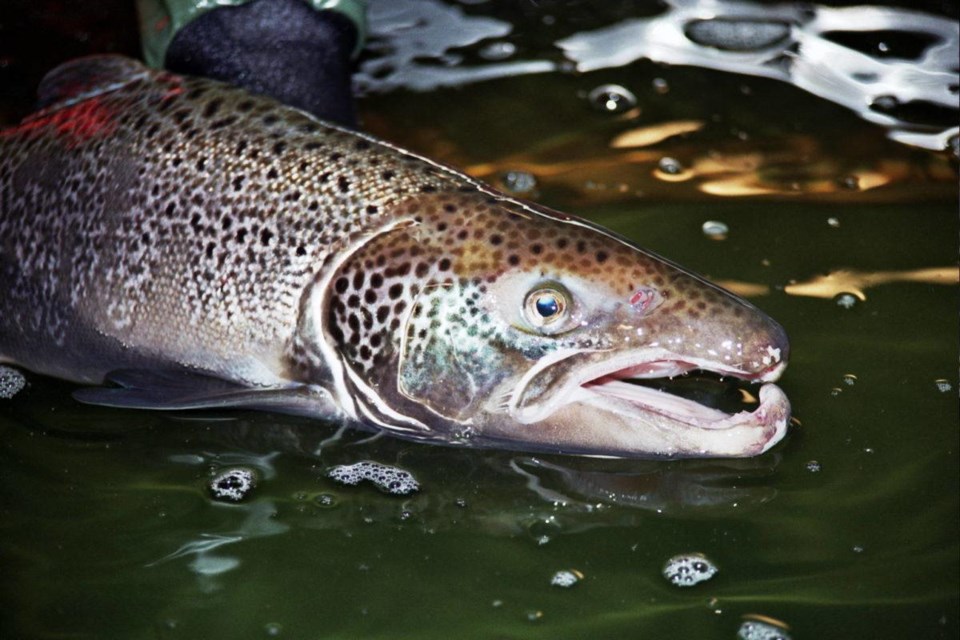Six Atlantic salmon have been found in the Lower Fraser River since an estimated 160,000 such fish escaped from the Cypress Island open-net farm in Washington State on Aug. 20.
Despite the farmed salmon spreading throughout B.C.’s South Coast, Byron Andres, head of the Atlantic Salmon Watch Program (ASWP), said there is no reason to suspect the fish pose a threat to the natural ecosystem.
“That said, the watch exists to monitor for their presence,” said Andres.
In B.C., there have been 58 recent reports of Atlantic salmon in open waters, while ASWP, a division of the Department of Fisheries and Oceans (DFO), has confirmed 26 cases, as of Friday, according to Andres. Fish have been detected as far north as northern Vancouver Island, in the Eve River.
Atlantic salmon had once been introduced to Pacific waters in the early 20th century, but they failed to spawn successfully. Andres said there was one stream on Vancouver Island where juvenile Atlantic salmon were once found, but they never returned, according to subsequent surveys.
“Our primary concern is monitoring for established populations,” he said, noting DFO would be mostly concerned with the farmed fish competing for resources (food and spawning beds) against the five wild Pacific salmon species found in B.C.
The program has studied the recovered fish and found that all but one had empty stomachs. That said, most were caught by anglers, so the fish were showing signs of foraging, noted Andres. The fish are not sterilized and theoretically viable to propagate, although they do have poorly developed gonads, said Andres. Mating and hybridizing with Pacific salmon is not possible, he said.
The fish found in the Fraser were caught in test fisheries and by First Nations gillnets.
The ASWP website states there had been just three confirmed cases of escaped Atlantic salmon in Pacific waters since 2011.
Open-pen fish farming continues to be a hotly-contested matter in B.C. Last month, the First Nations Leadership Council (FNLC) once again called on provincial and federal governments to end open-pen salmon farming, citing diseases and threats to wild salmon smolt.
“This industry continues to operate under archaic provisions, allowing environmental polluters to pass their economic burden onto the environment and surrounding communities,” said FNLC.
The B.C. Salmon Farmers Association claims, citing the Pacific Salmon Foundation, there is no evidence linking declining wild salmon stocks to salmon farms.
Aquaculture farms form a $1.1 billion industry, one that both Richmond Members of Parliament, Liberal Joe Peschisolido and Conservative Alice Wong, support.
Although Steveston fishers oppose farms, both MPs voted against a defeated NDP-proposed bill last December calling for farms to move to land or closed-containment systems.
Peschisolido said land-based aquaculture systems are not yet viable to support the bill, but he supports DFO research into the matter.
Environmentalists, such as local community activist and former DFO biologist Otto Langer, note DFO is in a conflict of interest by regulating both fish farms and wild salmon.
Based on history and attempted releases by provincial authorities many years ago, the current assessment of risk of Atlantic salmon is low.



